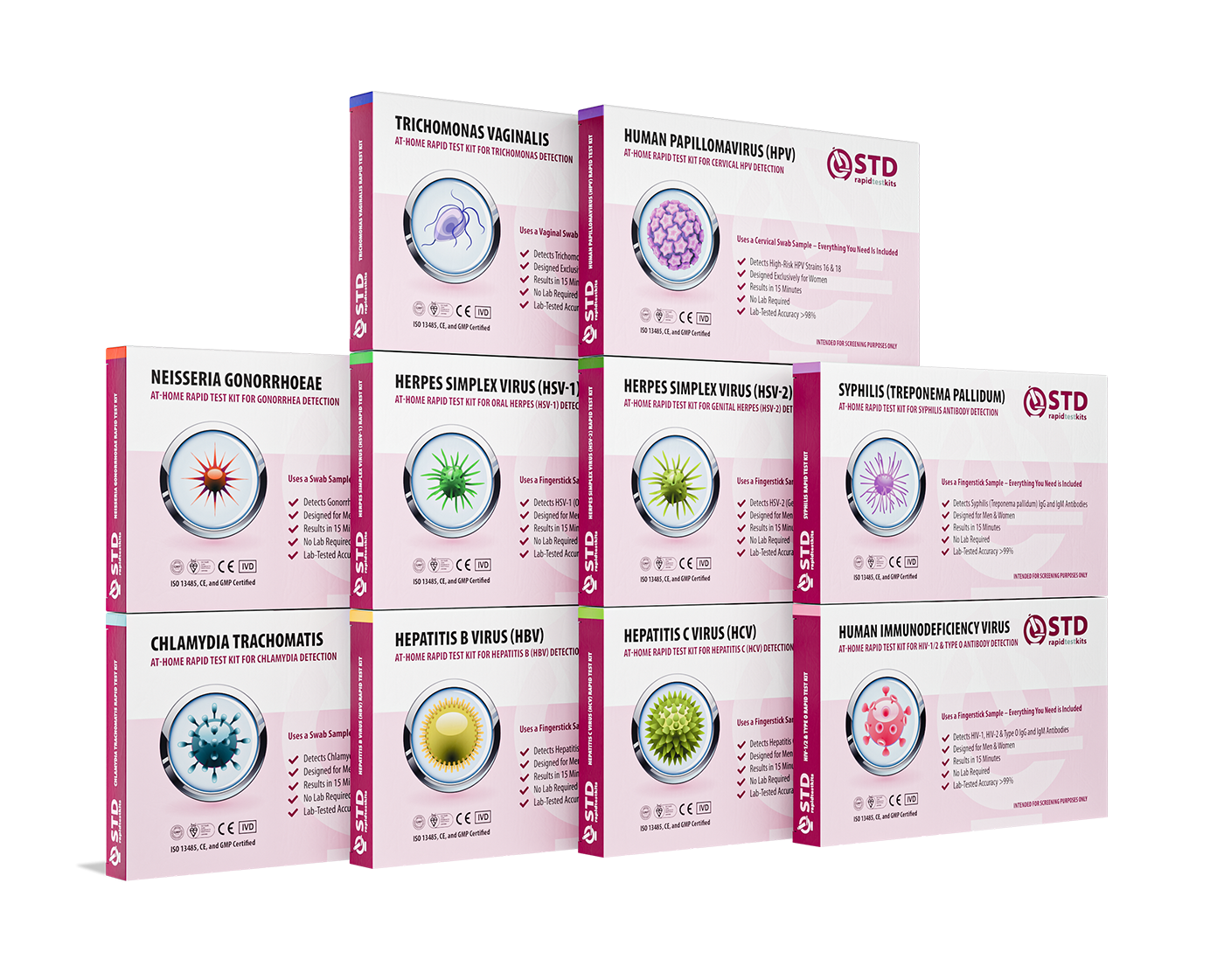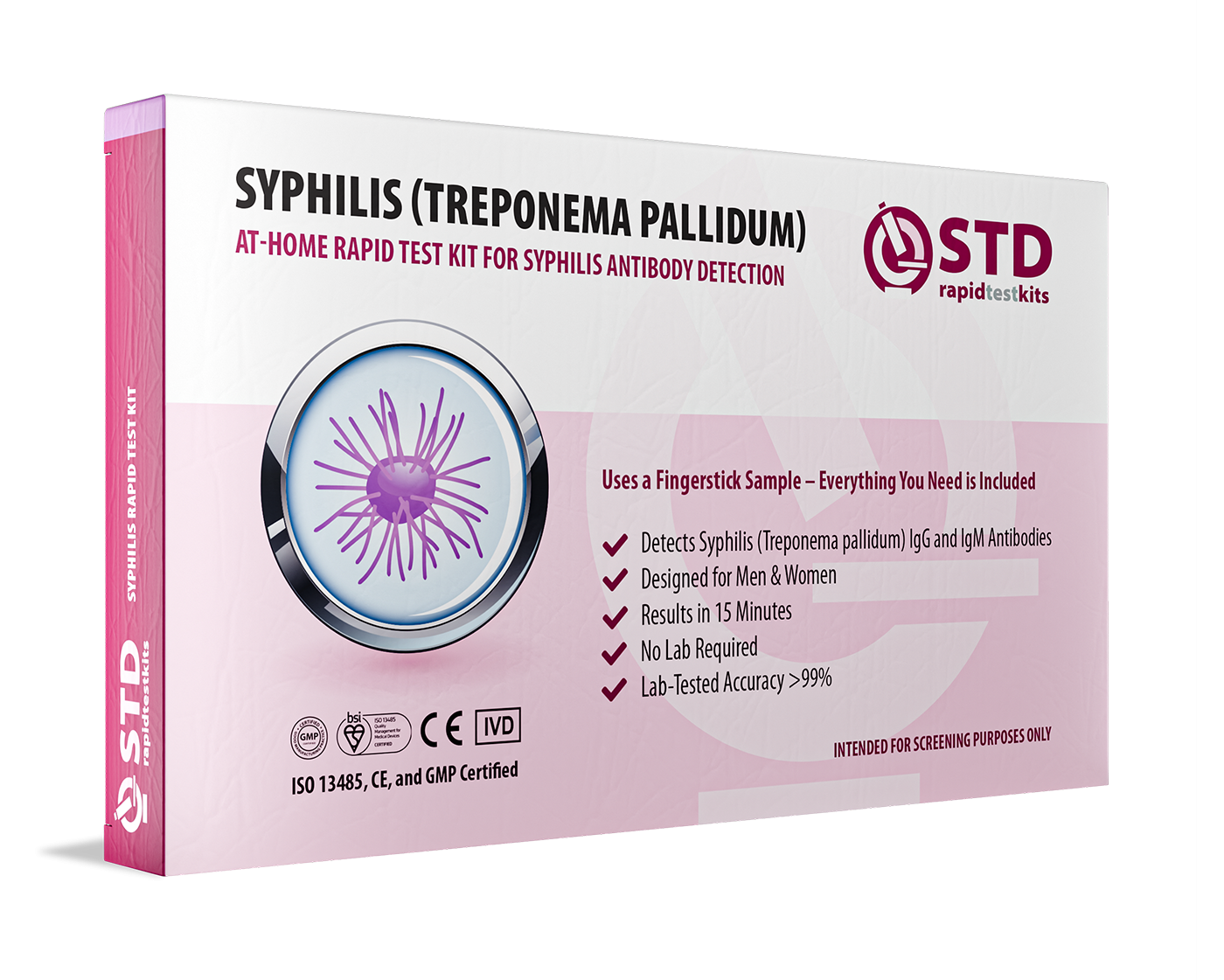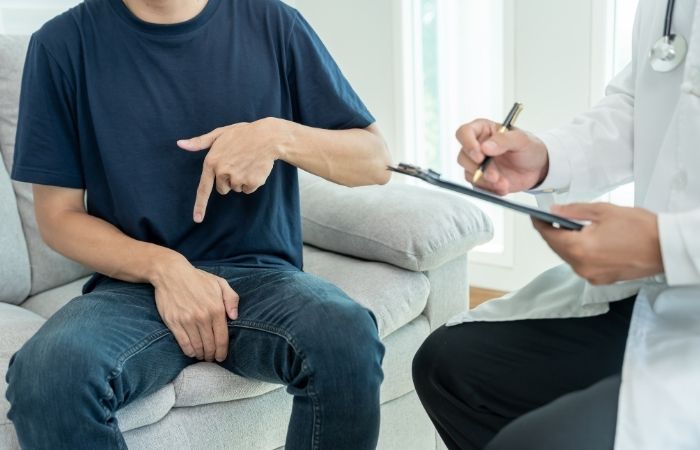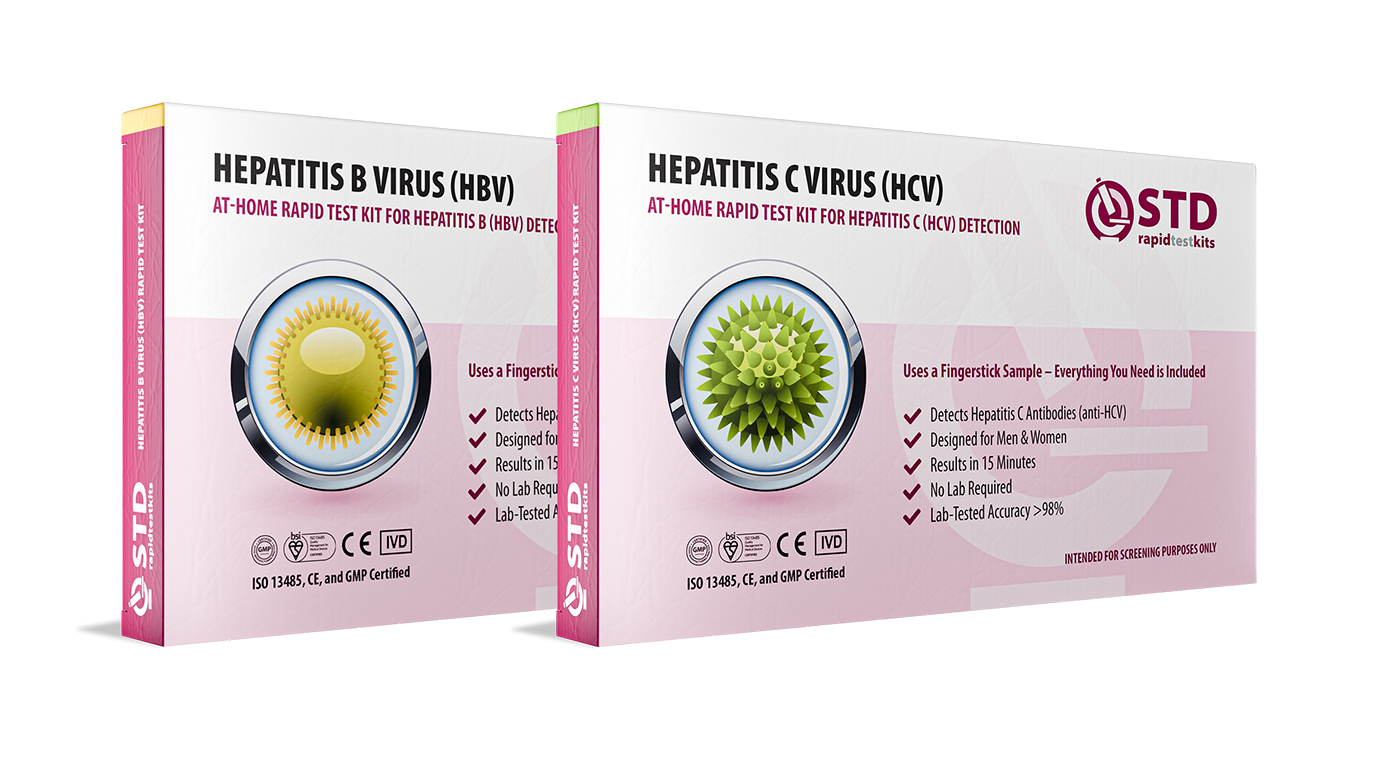STD Prevention for Queer Women; Yes, It Matters
Quick Answer
Drinking alcohol increases the risk of STDs by impairing judgment, reducing condom use, and increasing the likelihood of casual or anonymous sexual encounters. It also weakens immune response, which can make infections more likely to take hold or worsen.
Drunk Decisions: The Surprising Ways Alcohol Impacts Your Sexual Health
The relationship between alcohol and sexual health isn’t new. But it's one we still don’t talk about enough. Across cultures, drinking is embedded in rituals of flirtation, partying, dating, and celebration. For many people, alcohol becomes the social lubricant that breaks the ice and blurs boundaries. But that same blurry line can lead straight to unprotected sex, regretful hookups, or worse, waking up days later with burning, itching, or worrying symptoms.
Studies from around the world consistently show that alcohol consumption is linked with increased rates of Chlamydia, Gonorrhea, Syphilis, HIV, and other infections. This isn’t just about heavy drinkers or “alcoholics.” It’s about what happens when anyone mixes sex with substances that turn down the volume on their inner voice, the one that usually says, “Maybe I should grab a condom.”

Why This Matters
Talking about the alcohol-STD connection isn’t about shaming drinking, it’s about protecting people’s health in the real world. When we acknowledge how common it is to make different sexual decisions while drinking, we can start to intervene with compassion and clarity.
When people know the risks, they’re more likely to:
- Prepare ahead: bring protection, talk about boundaries, avoid high-risk settings
- Test regularly: especially after nights they can't fully recall
- Stay sexually safer: even if they drink, they learn to make better backup plans
- Reduce the long-term impact: early diagnosis of infections means faster treatment and fewer complications
Public health campaigns that address alcohol and sexual health together tend to perform better in outreach and education than those that treat them separately. It’s not just about being careful, it’s about being equipped.
Challenges or Risks
The biggest challenge with alcohol and sexual health is that the risk doesn’t feel real in the moment. That’s the point. Alcohol makes people feel bold, numb, or invincible, and that’s a dangerous mix when it comes to sexual safety.
Common risks include:
- Unprotected sex: The number one behavior linked to alcohol-related STD transmission
- Multiple or anonymous partners: Harder to track, harder to test or notify
- Forgetfulness: Not remembering who or how many, which can delay testing or treatment
- Assumption of safety: Believing that if someone “looks clean” or “seems healthy,” they probably are
In many countries, access to healthcare or sexual health testing is already strained. When alcohol increases risky sex, especially in places where testing is stigmatized or expensive, the cycle of silent infections grows. Many STDs are asymptomatic at first, but they’re still contagious. Alcohol’s role in spreading them often goes unspoken, making it even harder to break the chain.
Order Now $189.00 $490.00 Check Your STD Status in Minutes
Test at Home with Remedium
10-in-1 STD Test Kit




For all 10 tests
Solutions or Recommendations
The solution isn’t as simple as “don’t drink.” For most adults, alcohol is part of their social lives. What’s more realistic, and effective, is making harm reduction strategies part of our conversations around sex and safety.
Here’s what actually works:
- Pre-game protection: If you’re heading out and think sex might be on the table, stash condoms or dental dams in your bag, wallet, or bedside.
- Buddy systems: Just like you'd plan a ride home, have a friend help watch for sketchy situations or excessive drinking that could lead to unsafe sex.
- STD testing plans: Make it a routine to test after big events (festivals, holidays, birthdays) where alcohol-fueled hookups are common.
- Know your limits: You don’t need to be completely sober to stay safer, but knowing your tipping point and sticking to it can help you stay more in control.
- Access at-home testing: No judgment, no awkward clinics, use STD Rapid Test Kits to test from the privacy of home.
Statistical Insights and Data
When it comes to raw numbers, the connection between alcohol use and STD risk is not just anecdotal, it's measurable, global, and deeply concerning. A cross-sectional study published in The Lancet found that individuals who reported binge drinking were twice as likely to engage in unprotected sex within the same week. Similar findings emerged from WHO-backed surveys across sub-Saharan Africa, Latin America, and parts of Southeast Asia: alcohol consumption consistently predicted higher rates of HIV, syphilis, and gonorrhea, especially among youth and marginalized groups.
In the U.K., Public Health England has tracked a rise in STDs among individuals who frequent nightlife hubs. In over 30% of these cases, alcohol was cited as a key factor in risky sexual behavior. Meanwhile, studies from India and South Africa show that alcohol use increases both transactional sex and the likelihood of condom refusal, particularly among women negotiating power dynamics with intoxicated male partners.
And it’s not just “developing countries.” A multi-campus U.S. university study revealed that 73% of students who reported a one-night stand after drinking had not used protection. More than half said they wouldn’t have made the same choices sober. That statistic transcends geography. The pattern shows up in Tokyo, in Paris, in Nairobi, and in small towns where alcohol is more accessible than sex ed.

Expert Opinions and Case Studies
Dr. Lina Ramos, a sexual health researcher based in Madrid, says this bluntly:
“Alcohol doesn’t cause STDs, but it increases the chances that someone will ignore everything they know about preventing them.”
One anonymous case from a study out of the Philippines involved a 24-year-old woman who was confident in her sexual boundaries until her birthday night ended with blackout drinking and sex with someone she barely knew. She later tested positive for chlamydia and HPV, neither of which had caused symptoms yet. She said the most painful part wasn’t the diagnosis, it was the shame of “knowing better, but still doing it.”
These stories echo across ages and continents. A married man in his 40s described in a German public health survey how a work trip and a “few too many beers” led to a one-night stand and an eventual herpes diagnosis. He said the hardest conversation wasn’t with his doctor, it was with his wife. That’s the thing about alcohol-related risk: it doesn’t just target a type. It targets a moment. And those moments can happen to almost anyone.
Historical Context
Historically, the connection between alcohol and sexual risk has long been acknowledged, sometimes to stigmatizing extremes. In the 19th and early 20th centuries, “drunkenness” was often blamed for syphilis outbreaks, particularly in brothel-heavy urban centers like London, Paris, and New York. Women, especially sex workers, were disproportionately punished or blamed, while their male clients were painted as hapless victims of booze and lust.
By the 1980s, as the HIV/AIDS epidemic raged, public health messaging began shifting. The idea of “safe sex” became widespread, but alcohol was still a gap in the narrative. Even now, many STD awareness campaigns around the world focus on condom use and partner communication without acknowledging how alcohol can sabotage both.
Culturally, the messaging around alcohol and sex has remained conflicted. In some communities, it’s taboo to even admit that people drink and hook up. In others, it’s almost expected. That leaves a lot of people unprepared, and a lot of missed chances for prevention.
Order Now $33.99 $49.00 Check Your STD Status in Minutes
Test at Home with Remedium
Syphilis Test Kit




Future Trends
Here’s the good news: awareness is growing. Countries like Australia, Brazil, and Sweden are beginning to integrate alcohol education into sexual health curricula. New apps and online platforms allow users to order condoms, access emergency contraception, or book STD tests right from their phones, often promoted on party-heavy weekends and holiday seasons.
The rise of at-home STD testing, like those offered by STD Rapid Test Kits, is another powerful tool in this shift. It allows people to quietly deal with that sinking “uh-oh” feeling after a foggy night, without waiting weeks for a clinic appointment or facing judgment.
Technology is also helping track and respond to patterns. AI tools are already being used in some regions to flag spikes in STD cases around events with known alcohol consumption spikes, music festivals, Pride weekends, university orientation weeks. As we look forward, the most effective public health campaigns will be those that treat people not like cautionary tales, but like humans who sometimes make choices they regret, and who deserve the tools to stay safe anyway.
Practical Applications
So how do we actually use this knowledge in everyday life? How can someone who enjoys drinking still protect their sexual health in real ways, not just in theory?
First, normalize preparation
It shouldn't feel weird to pack condoms before a night out, the same way you’d bring your phone charger or keys. When alcohol is on the table, preparation isn’t paranoia, it’s responsibility. Have them on your person. Not tucked in a drawer you won’t remember to open.
Second, talk about it with your circle
If you're in a friend group that regularly goes out, make these conversations part of the norm. Who’s got condoms tonight? Who’s doing a testing check-in next week? The more your community treats sexual health like basic hygiene instead of a hush-hush secret, the less shame gets in the way of safety.
Third, keep at-home STD tests on hand.
There’s nothing worse than spiraling for days after a risky encounter, wondering if you should go to a clinic, or what to say if something’s wrong. With discreet delivery and fast results, tests like the Chlamydia + Gonorrhea Home Test offer peace of mind without panic.
Finally, make testing a ritual, not a reaction. Schedule it like dental cleanings or oil changes. If you drink regularly and have sex with new or multiple partners, make quarterly testing part of your self-care.

Industry Impact
Public health organizations, dating apps, nightlife businesses, and even alcohol brands are starting to pay attention to the sexual health consequences of drinking. In some places, bars offer free condoms in restrooms, and clubs host sexual health pop-ups where you can grab testing info or even kits while waiting in line.
Apps like Tinder and Grindr have partnered with testing organizations to send reminders about STD checks after big holidays or during STD Awareness Week. Some global campaigns now encourage conversations about alcohol and safe sex during major drinking events like Oktoberfest or Carnival.
In the healthcare sector, there’s a push for more bundled messaging. Instead of separating sexual health from substance use, clinics and counselors are working to address them together, because that's how they show up in real life. And as more people seek privacy and autonomy, the demand for at-home testing solutions continues to rise. Companies that offer fast, reliable testing without the clinic shame are helping close the care gap for millions.
Personal Stories or Testimonials
Tariq, 27, said his worst regret wasn’t the one-night stand, it was putting his partner at risk.
“We were both drunk. No condom. I didn’t think about it until three days later when I had a weird discharge. I’d had chlamydia before, but I thought I’d know better this time. Turns out alcohol made me forget the lessons I already knew.”
Lena, 22, got herpes after a New Year’s Eve party she barely remembers.
“I didn’t even know his last name. I don’t blame the alcohol, I blame myself for not being more careful, but it wouldn’t have happened sober.”
Marco, 34, now keeps a combo STD test in his bathroom drawer.
“I used to wake up after partying and just obsess over what might’ve happened. Now I test, deal with it, and move on. It’s not shameful. It’s just smart.”
These stories aren’t meant to scare you. They’re meant to show you that you’re not alone. Regret happens. Risk happens. But so does healing, and reclaiming control.
Order Now $49.00 $98.00 Check Your STD Status in Minutes
Test at Home with Remedium
Hepatitis B & Hepatitis C Test Kit




For all 2 tests
Common Misconceptions
A lot of myths still get passed around, especially when people are trying to justify what happened after drinking. Let’s clear a few of those up.
“You can’t get STDs from oral sex while drunk.”
Yes, you absolutely can, especially herpes, gonorrhea, and syphilis.
“I was too drunk, so it doesn’t count.”
It counts. Your body doesn’t care how sober you were. Infection risk is based on exposure, not intention.
“If I don’t feel symptoms, I’m probably fine.”
Wrong. Many STDs, especially chlamydia and HPV, can be asymptomatic for weeks or even months.
“Only people who sleep around while drinking get STDs.”
Also false. You can catch something from a single encounter. Risk isn’t about numbers, it’s about exposure and protection.
“Drinking just once in a while doesn’t matter.”
Even one night of lowered inhibition can change everything. You don’t have to be a frequent drinker to end up exposed.

FAQs
1. Can you actually get an STD from one drunk fling?
Yes. All it takes is one unprotected encounter to transmit chlamydia, gonorrhea, herpes, HIV, or any other STD. Alcohol isn't going to save you, only increase the chances that you'll forget protection.
2. How quickly should I get tested after having drunk sex?
Wait 1-2 weeks for all of the more usual STDs such as chlamydia and gonorrhea, but come back right away if you develop symptoms. If it's HIV, syphilis, or hepatitis, come back in 3 months to ensure.
3. I can't recall what took place, must I still get myself tested?
Yes, if alcohol caused difficulty recalling information, then exposure is a possibility. Also, take a home test kit to obtain a result without stigma.
4. Does alcohol decrease your immune system?
Yes. Heavy alcohol use weakens your immune system, allowing infections, particularly HIV and HPV, to more easily take hold or become worse.
5. Is drunk sex consensual?
That varies depending on the circumstances and laws where you are, but medically, consent isn't the only issue, risk and safety are as well. Look after yourself anyway.
6. If I wore a condom but was drunk, am I at risk?
You're safer but more apt to make an error while under the influence. Slipped condoms, incorrect use, or forgetting whether it was used at all are potentialities. If in doubt, best to test.
7. Does alcohol interact with STD drugs?
Yes. Alcohol can lower your body's efficiency at breaking down some antibiotics, particularly if you're being treated for trichomoniasis or syphilis. Always take your doctor's advice.
8. I rarely drink alcohol, should I be concerned?
Even a seasoned drinker can make unsafe choices. Regardless of how frequently you drink, what you do when you do is the issue. One evening is all it takes to require being tested.
9. Is it possible to avoid STDs if you know you will be drinking?
Yes. Be ready. Take protection, have a support group, keep drinks to a minimum, and have testing kits like the Chlamydia + Gonorrhea Home Test on hand.
10. I am embarrassed and afraid. What can I do?
Breathe first. STDs are extremely common, and guilt only slows down your recovery. Testing is the initial courageous step, and with STD Rapid Test Kits, you can do so privately, safely, and on your own terms.
Be Careful When Drinking!
Worried about last night’s decisions? Don’t spiral, take control. Use the Chlamydia + Gonorrhea Home Test and get the answers you need from home. Or explore the full range of discreet STD Rapid Test Kits for peace of mind, no matter what happened.
Sources
1. AlcoholHelp – The Relationship Between Alcohol and STDs
2. PMC – Alcohol Increases Risk of STIs Through Risky Sexual Behavior (Systematic Review)
3. PMC – Alcohol Use Linked to Unprotected Sex in College Students
4. CDC MMWR – Alcohol Policy and STD Rates (Higher Alcohol Taxes Linked to Lower STD Incidence)
5. Wikipedia – Alcohol Myopia: Focus on Immediate Cues & Ignore Long-term Risks










